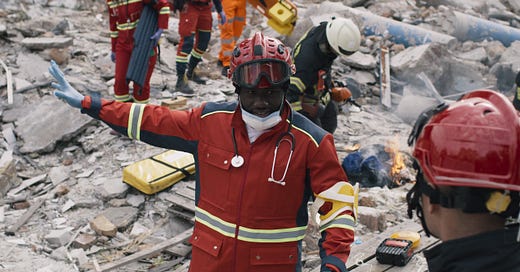In today's TPOM, we will examine the concept of bravery. We hear about this concept often, but what exactly is bravery, and how can we know someone is brave?
Bravery
"Daring, courage, valor, fortitude (as a good quality)." OED.
"Splendor or magnificence; show. " The American Heritage Dictionary 5th Edition.
"The quality of being brave; courage; heroism; undaunted spirit; intrepidity; gallantry; fearlessness." The Century Dictionary.
"A quality of spirit that enables you to face danger or pain without showing fear. " WordNet 3.0 Copyright 2006 by Princeton University.
Bravery is a quality one possesses at any given moment in time. It can be fleeting and show up in a singular instance of one's life otherwise lived in cowardice, or it could be the way an individual has lived their entire life. This quality is nothing more than the ability of an individual to stand. When one stands for a cause, concept, idea, belief, or what have you in the face of negative to extraordinarily negative life-altering consequences ranging from ridicule to the immediate certainty of death, then that individual is being brave.
The Vacuum
Bravery is often thought of or at least described as if it were a concept that exists outside of an environment of opposites. The concept of bravery is only discernable within an environment where fear is present. The brave are not fearless, though the fearless can do brave things. They may undertake brave-looking actions but do so from a host of different generative causes. We will get to the details about that type of manifestation in a moment. For now, the brave are those that experience fear over the entire range of possible fears, be it from minor experiences like having butterflies in one's stomach before a musical performance to experiencing crippling fear like that of the early Christians under the threat of horrific and exceedingly painful deaths for refusing to acknowledge the Imperial Cult, and therefore, the Caesar as a god.




